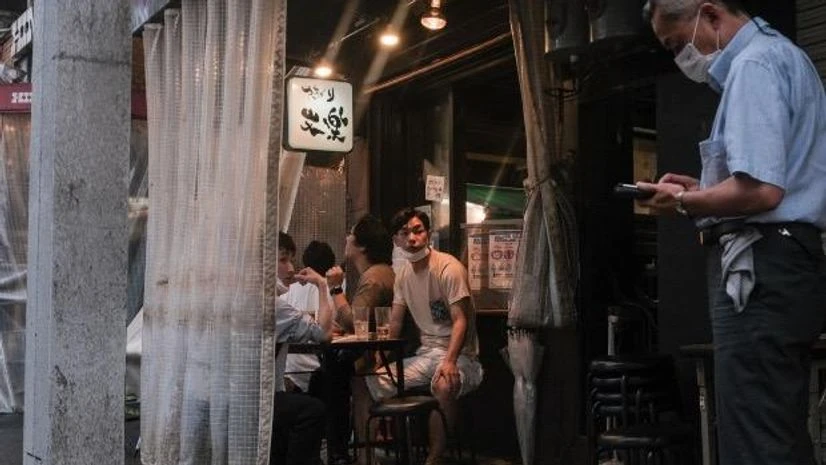Japan's capital, Tokyo, reported its highest number of new coronavirus infections on Tuesday, days after the Olympics began. Prime Minister Yoshihide Suga urged people to avoid non-essential outings, but said there was no need to consider a suspension of the Games.
Tokyo reported 2,848 new COVID-19 cases, exceeding its earlier record of 2,520 daily cases on January 7. That brings its total to more than 200,000 since the pandemic began last year.
Tokyo is under its fourth coronavirus state of emergency, which is to continue through the Olympics until just before the Paralympics start in late August.
Experts have warned that the more contagious delta variant could cause a surge during the Olympics, which started Friday.
Still, Japan has kept its cases and deaths lower than many other countries. Nationwide, it reported 5,020 daily cases Monday for a total of 870,445 and 15,129 deaths. Its 7-day rolling average of cases is about 3.57 per 100,000 people, compared to 2.76 in India, 17.3 in the United States and 53.1 in Britain, according to data from Johns Hopkins University.
Asked if he is considering an option of suspending the Games, Suga replied, There is no worry about that," adding that people have been moving about less since the Games started because of traffic controls and the government's request that they work remotely.
Suga again urged that people avoid non-essential outings. "Please watch the Olympic Games on TV at home, (asterisk) he said.
More From This Section
Suga's government has been criticized for what some say is prioritizing the Olympics over the nation's health. His public support ratings have fallen to around 30% in recent media surveys, and there is little festivity surrounding the Games.
Health Minister Norihisa Tamura, asked about the jump in cases, said it was not a surprise. Taking into consideration the global acceleration of infections because of the delta strain, which is taking over earlier variants, it was quite possible, he said.
Tamura blamed bars and restaurants that are still serving alcohol despite a ban under the state of emergency as a possible cause, instead of the Olympics.
Experts noted that cases among younger, unvaccinated people are rising sharply as Japan's inoculation drive loses steam due to supply uncertainty. Many serious cases involve those in their 50s. They now dominate Tokyo's nearly 3,000 hospitalized patients and are gradually filling up available beds. Authorities reportedly plan to ask medical institutions to increase their capacity to about 6,000 beds for COVID-19 patients.
Japan's vaccination drive began late and slowly, but picked up dramatically in May for several weeks as the supply of imported vaccines stabilized and the government pushed to inoculate more people before the Olympics.
The government says 25.5 per cent of Japanese have been fully vaccinated, still way short of the level believed to have any meaningful impact on reducing the risk for the general population.
(Only the headline and picture of this report may have been reworked by the Business Standard staff; the rest of the content is auto-generated from a syndicated feed.)

)
